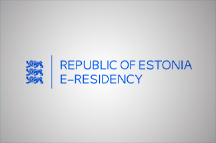Almost one in two (48%) Brits say they would be more likely to vote if able to do so electronically, according to new research from e-Residency, a government-issued digital identity that provides non-residents access to Estonia’s digital services, polled adults in both regions on their thoughts on digitising government services, including electoral voting.
With key elections happening in the UK and US this year, the research polled UK and US adults on their thoughts on digital government services and electronic elections. With low voter turnouts at UK elections, it is noteworthy that 72% of respondents would be willing to consider a new method of voting that might be quicker than visiting a polling station. Almost three quarters (73%) of UK respondents agreed an electronic voting process could be easier to use than traditional polling stations.
Having the ability to vote electronically would increase faith in and usage of wider government systems, with more than a quarter (28%) of UK respondents agreeing that electronic voting would increase their faith in the electoral process and over half (58%) believing electronic interfaces would streamline interactions with government services.
Designing digital systems
The research asked respondents which services they would find most useful if available on a single digital platform.
In the UK, the overwhelming response was the ability to access health records (50%) followed by:
- Local government services (i.e. street care, local crime reporting, road/parking issues): 46% of individuals agreed they would like if these services were digitised, making interaction with local authorities smoother;
- Electronic voting in elections: two in five (41%) considered electronic voting in elections to be one of the most useful services, with those in the North East most keen on making voting digital (49%);
- Banking: While banking has shifted rapidly online with the growing fintech ecosystem in Europe, 40% would like further online banking services.
Barriers to digital uptake
While there is clearly a desire for certain services to be offered digitally, there are barriers that must be addressed to encourage their usage.
When asked what would prevent individuals from registering to vote electronically the main concern was around personal data security and privacy (49%) closely followed by cyber attacks and hacking (48%) and a lack of trust in the registration process (35%).
Liina Vahtras, Managing Director of e-Residency said, “Research indicates a growing demand in the UK for the digitalisation of various services, including voting. By digitalising essential government functions and integrating technology into many facets of society, administrative tasks, such as voting, become much simpler and accessible for residents and non-residents alike.
“Estonia’s successful digital infrastructure, built on years of transparency and integrity, has resulted in a seamlessly integrated digital society with widespread citizen participation. The e-Residency programme was created to provide digital ID’s to vetted non-residents, who through this, are able to access Estonia’s wealth of digital services, including access to the country’s transparent business environment, health records, banking and voting in regional and national elections. Across its ten year tenure, the e-Residency programme has granted over 113,500 people e-resident status with the number continuing to climb which speaks to the desire for the digitization of various services.”












